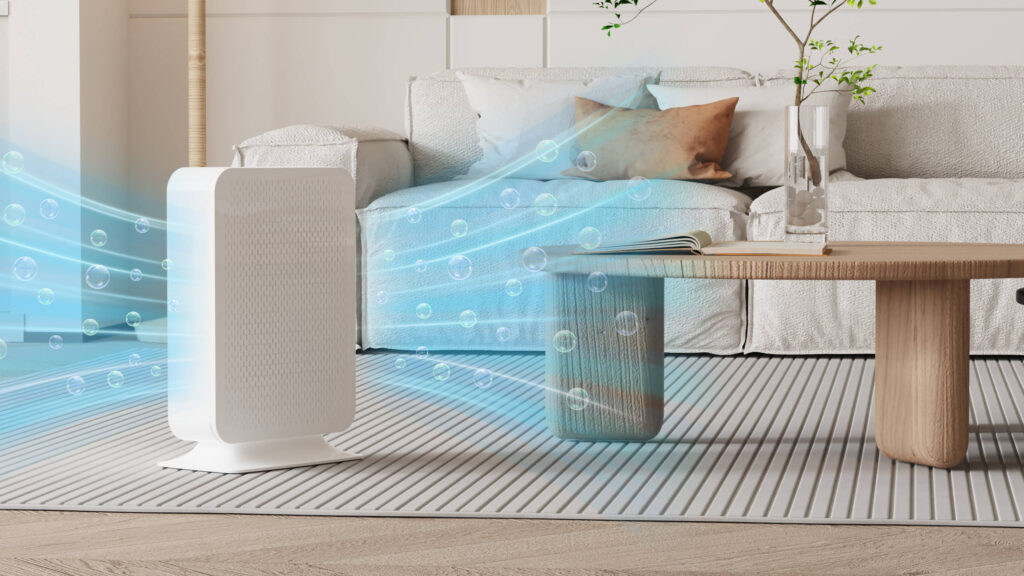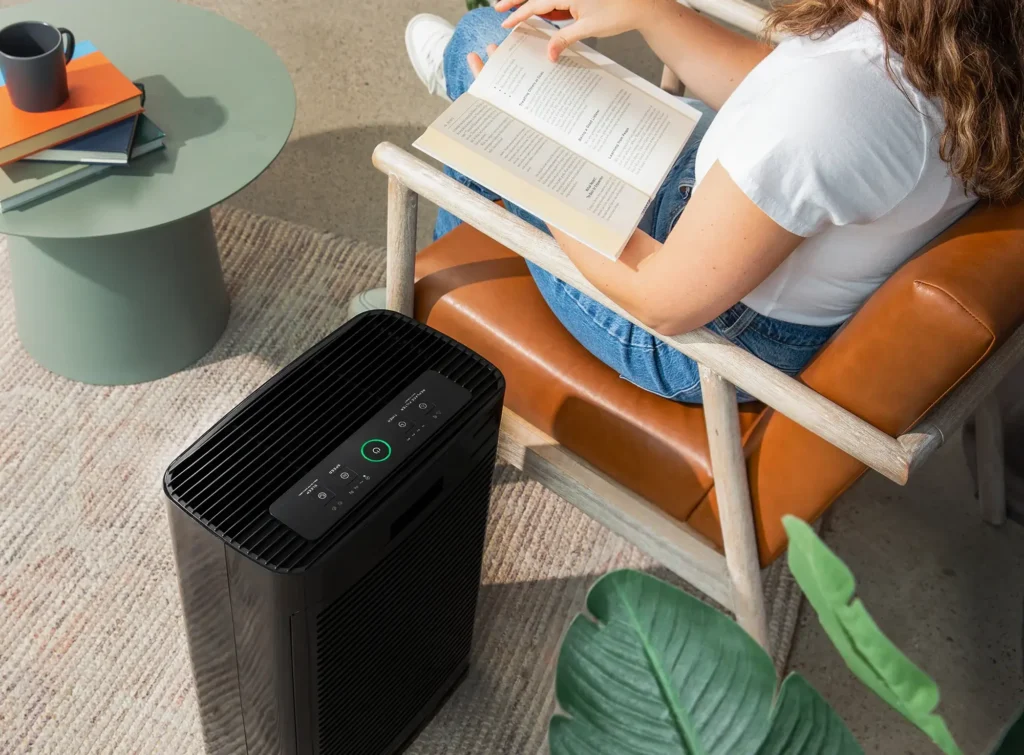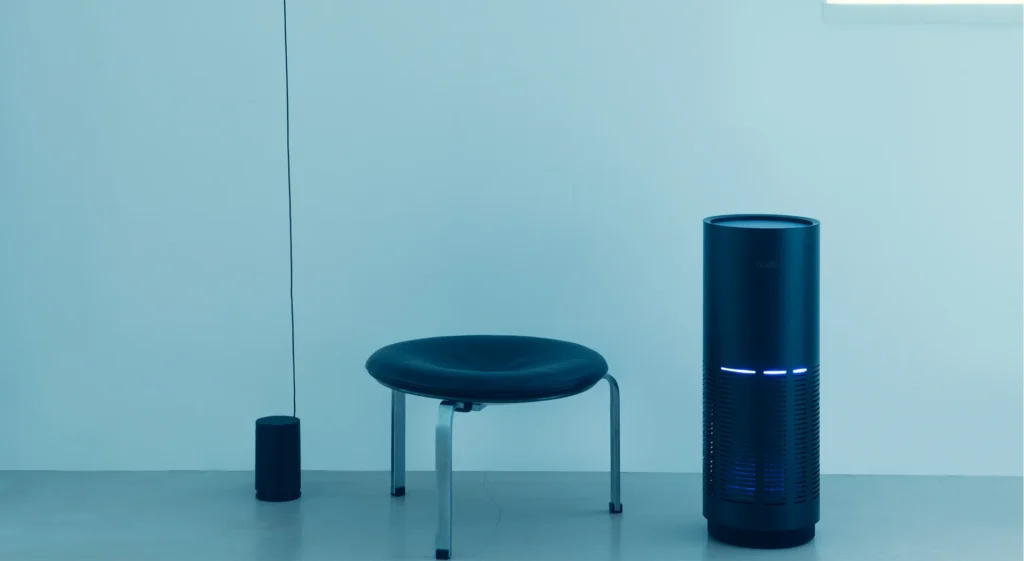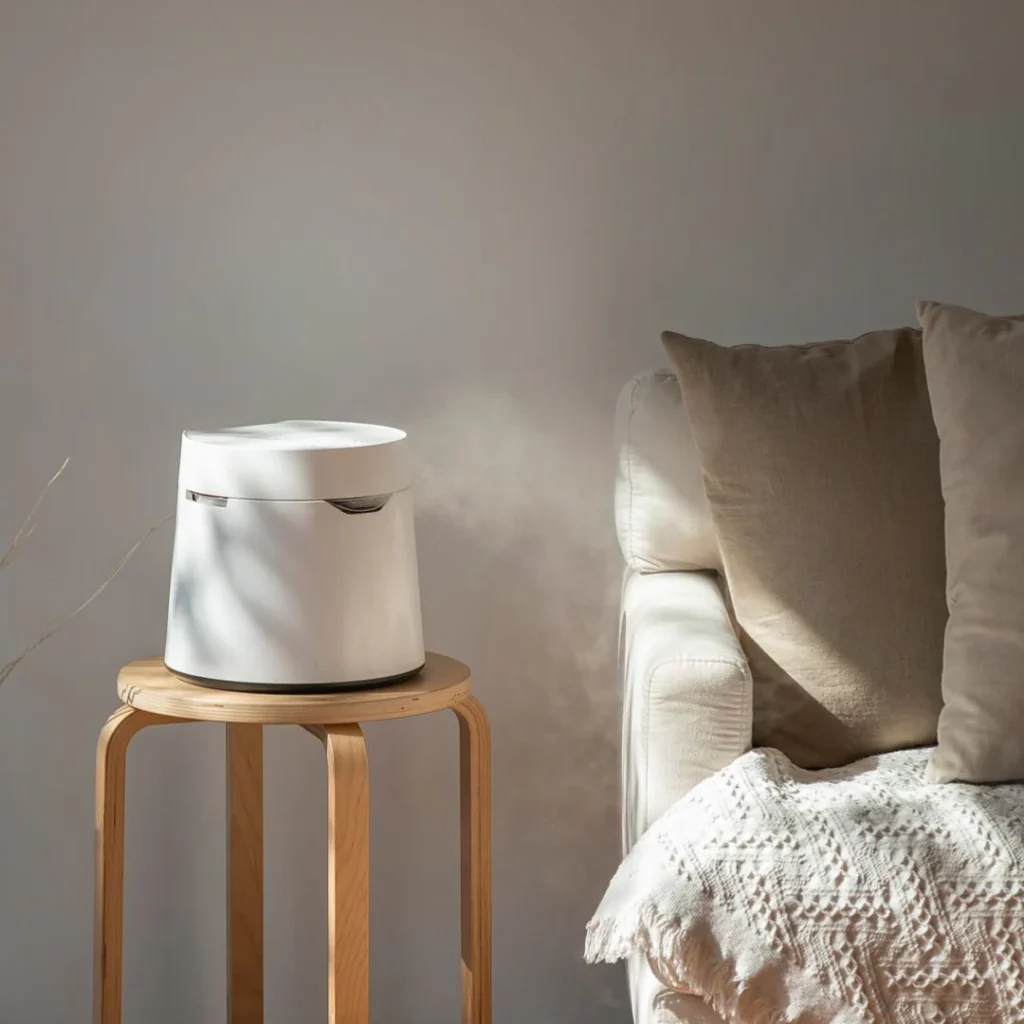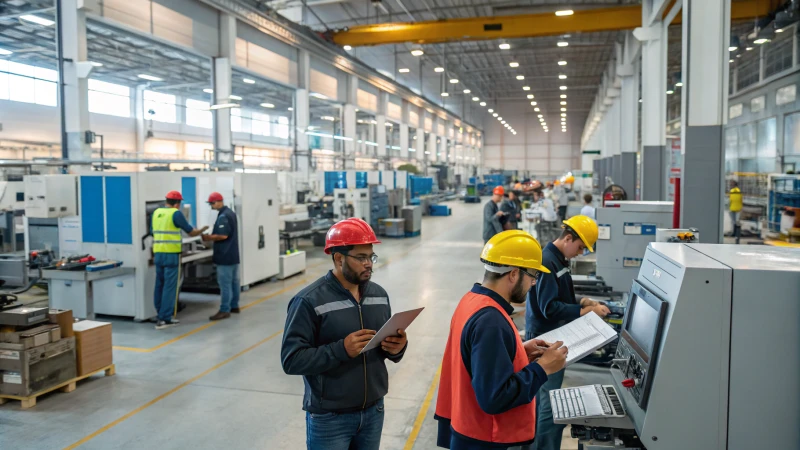Hi, I'm Alwen Lee. After spending over a decade tackling indoor air quality challenges across our manufacturing facilities in China, Vietnam, and Thailand, I've witnessed firsthand how dust becomes more than just a nuisance in commercial settings—it's a genuine business problem. It silently damages equipment, affects employee health, and even shapes how customers perceive your brand. One question keeps coming up when I meet with business leaders like Marshal from Canada: "Do air purifiers actually make any meaningful difference with dust in commercial environments?"
The answer is an emphatic yes—but with an important caveat. Those standard consumer units you might use at home? They simply can't handle the demands of commercial spaces. What businesses truly need are robust systems specifically engineered for larger areas, higher occupancy, and the complex mix of pollutants found in commercial settings. Commercial-grade air purifiers with True HEPA filtration remove 99.97% of dust particles as small as 0.3 microns, transforming indoor air quality in business environments.
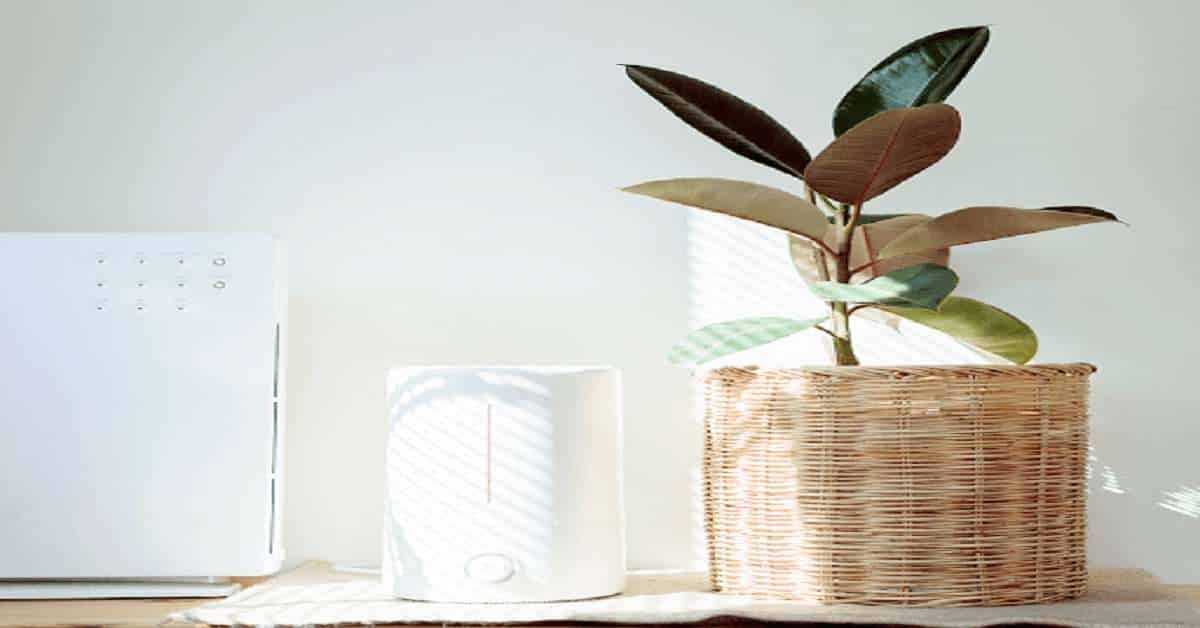
I'd like to share some practical insights from my years at HisoAir developing air purification solutions for businesses worldwide. We'll explore what makes commercial dust uniquely challenging, break down the technology that effectively captures it, examine the concrete business benefits of investing in clean air, and walk through how to select the right system for your specific needs. Let's cut through the haze and get to what really matters for your business.
What Makes Commercial Dust Different from Residential Dust?
We're all familiar with household dust—that annoying grey film that accumulates on surfaces despite our best cleaning efforts. But dust in commercial environments is an entirely different beast, with unique characteristics and far more serious consequences.
I remember walking through a client's electronics manufacturing facility last year. Despite their regular cleaning protocols, dust was causing component failures and quality control issues. Why? Because commercial dust isn't just larger quantities of household dust—it's fundamentally different in composition and behavior.
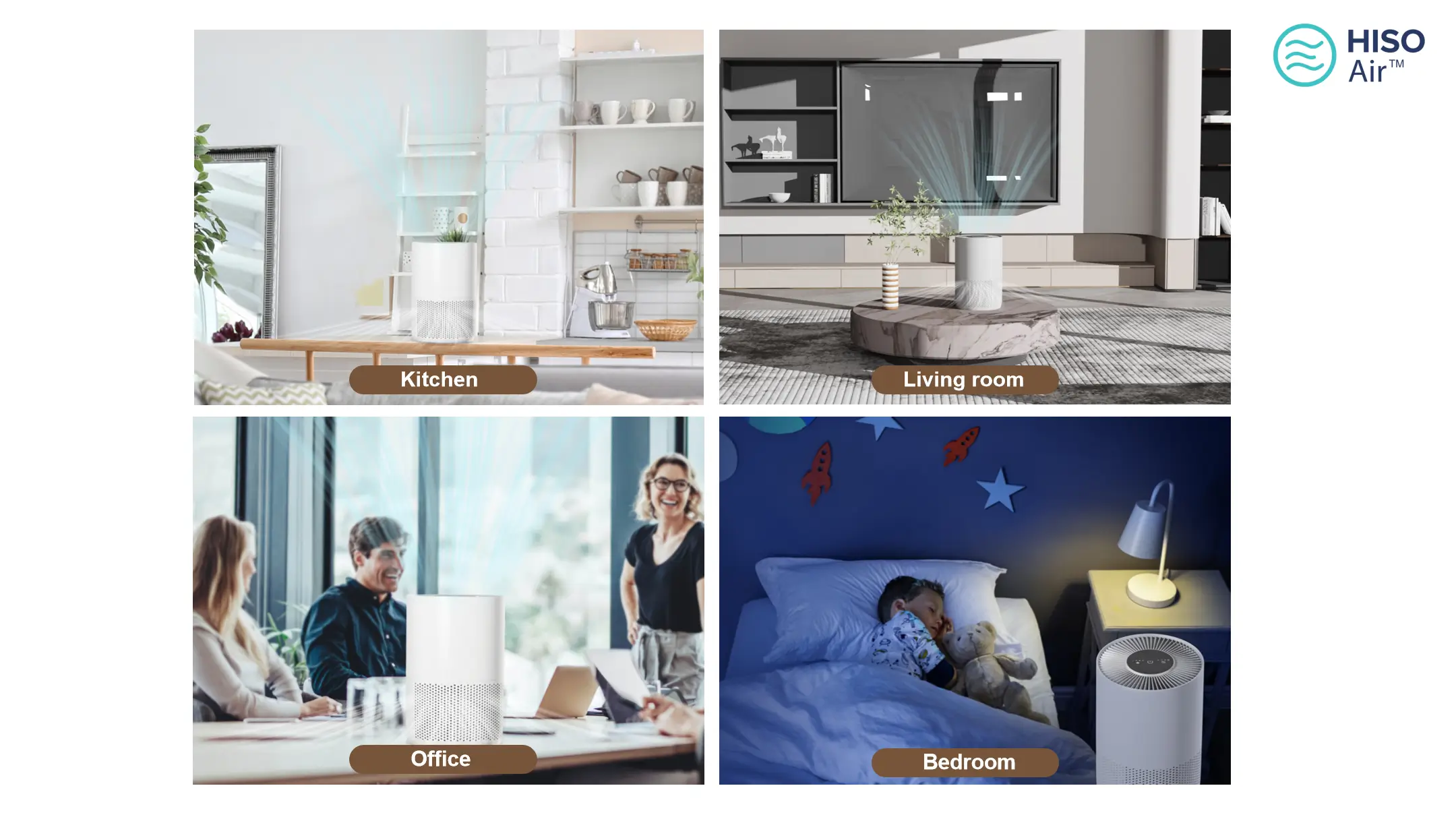
Unlike home environments where dust consists mainly of skin cells, pet dander, and textile fibers, commercial dust varies dramatically by industry:
- Offices: Paper particles, toner dust, carpet fibers, and outdoor pollutants tracked in by dozens or hundreds of employees daily.
- Manufacturing: Industry-specific particles like wood dust, metal shavings, chemical residues, lubricant mists, and packaging debris.
- ヘルスケア Textile lint, skin cells, airborne pathogens, disinfectant residues, and medical supply particulates.
- Retail/Hospitality: High foot traffic bringing outdoor contaminants, textile fibers from merchandise, and food particles.
What makes these particles particularly troublesome isn't just their variety but their size. Many harmful commercial dust particles fall within the PM10 (under 10 microns) and PM2.5 (under 2.5 microns) categories—far smaller than a human hair at 50-70 microns. These microscopic particles remain airborne longer, travel farther, and penetrate deeper into both sensitive equipment and human respiratory systems.
| Environment | Common Dust Sources | Particle Size Range (Typical) | Key Business Impacts |
|---|---|---|---|
| オフィス | Paper fibers, Toner, Carpet lint, Outdoor pollutants | 0.5 - 50 microns | Equipment malfunction, Allergies, Reduced productivity |
| 製造業 | Raw material dust, Metal filings, Chemical powders | 0.1 - 100+ microns | Product contamination, Equipment wear, Health hazards |
| ヘルスケア | Textile lint, Skin cells, Microorganisms, Cleaning residue | 0.3 - 30 microns | Infection control risk, Allergies, Equipment sensitivity |
| Retail/Hospitality | Outdoor dirt, Pollen, Textile fibers, Food particles | 1 - 100 microns | Customer perception, Merchandise cleanliness, Allergies |
The business impact is substantial and hits your bottom line in multiple ways. Dust accumulation leads to overheating electronics, clogged machinery components, and compromised product quality. For your workforce, it triggers allergies, respiratory issues, and potential long-term health problems—translating directly to increased sick days and diminished productivity. And let's not forget customer perception; a visibly dusty environment immediately signals neglect and poor management.
In commercial environments, dust particles ranging from 2.5 to 10 microns can significantly impact equipment longevity, employee productivity, and maintenance costs. Understanding the specific dust profile in your business isn't just interesting—it's essential for developing an effective management strategy.
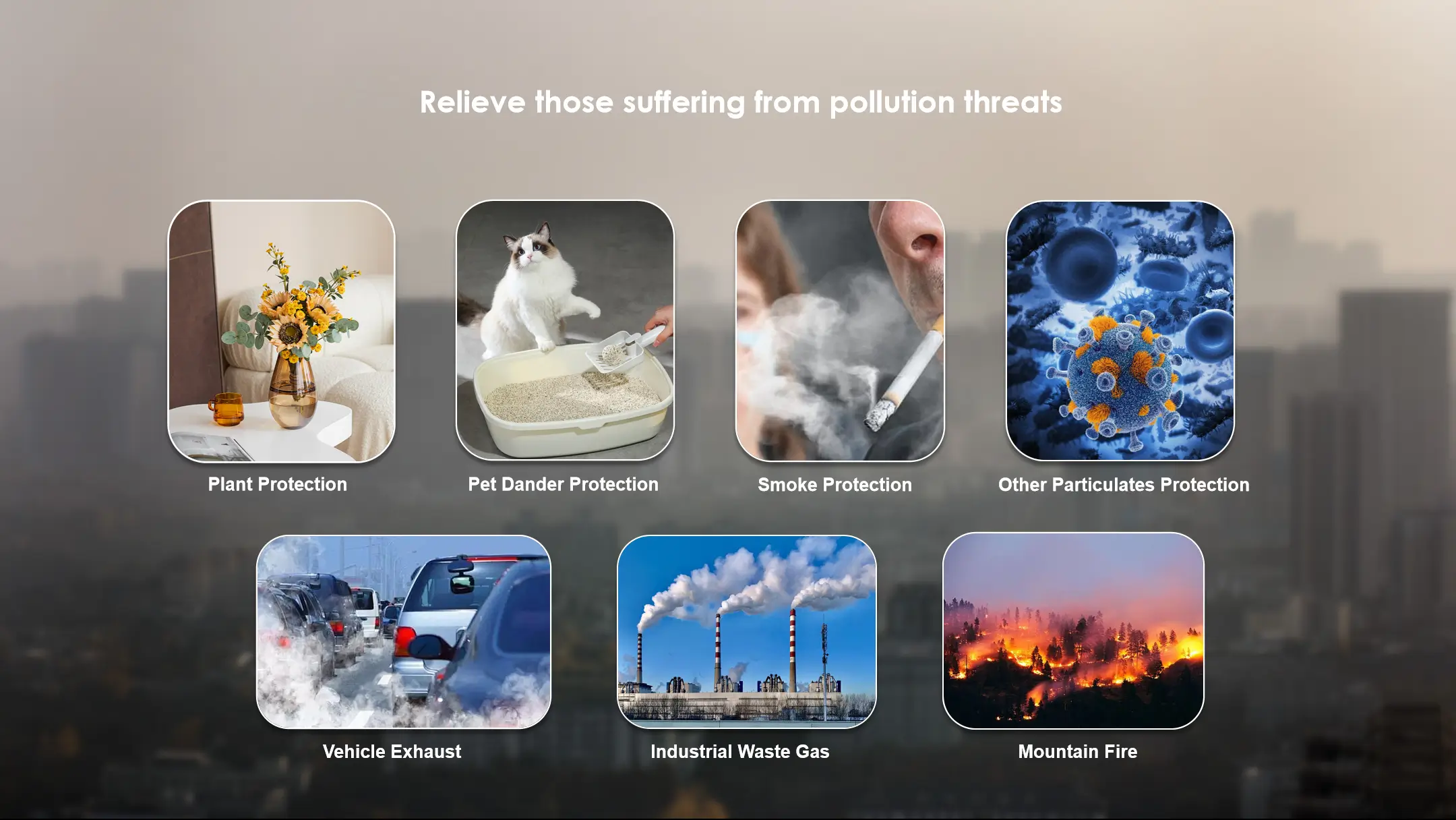
How Do Professional-Grade Air Purifiers Remove Dust Effectively?
When I first started working with commercial air quality solutions, I was struck by how fundamentally different professional-grade systems are from residential units. It's not just about scaling up—it's about completely different engineering approaches to handle the unique challenges of commercial dust.
The magic (though it's really science) happens through sophisticated multi-stage filtration systems designed to capture the full spectrum of airborne contaminants, with special emphasis on those troublesome fine and ultra-fine dust particles.
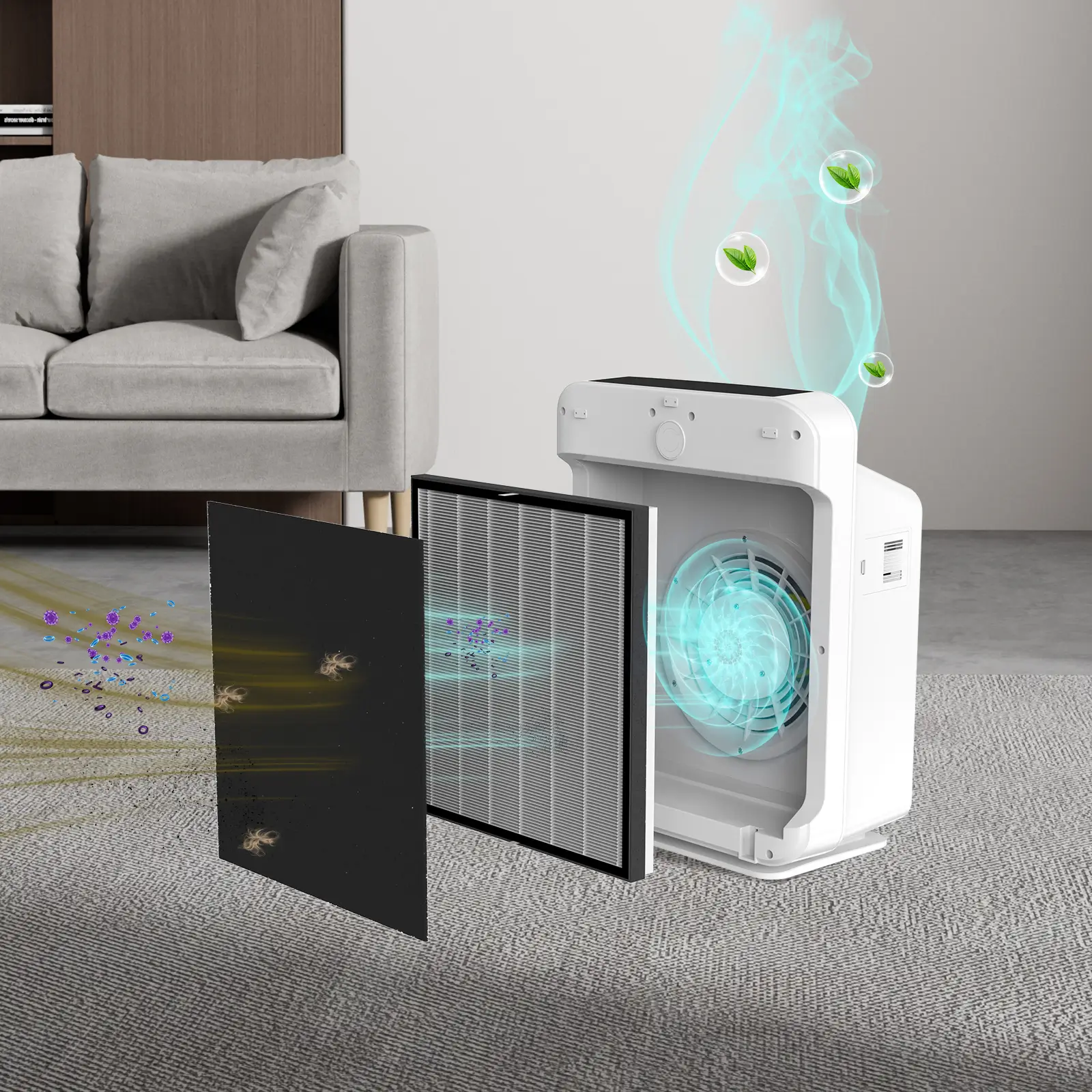
Let me walk you through how our high-performance systems at HisoAir tackle this challenge:
-
Pre-Filter Stage: Think of this as your first line of defense—typically a washable or easily replaceable filter made from materials like nylon or polypropylene. I often tell clients this is like the bouncer at an exclusive club, stopping the largest, most obvious particles (visible dust, hair, lint) from getting any further. This isn't just about catching big particles; it's about protecting the more sophisticated filters downstream from premature clogging, which extends their life and maintains optimal airflow.
-
HEPA Filtration: This is where the real heavy lifting happens. True HEPA filters—particularly H13 or H14 grades that meet rigorous international standards like EN 1822—are the gold standard for a reason. Last month, I was showing a client the difference between standard and True HEPA under microscopic examination. The difference was striking. H13 filters capture at least 99.95% of particles at the Most Penetrating Particle Size (MPPS), typically around 0.3 microns. This includes fine dust, allergens, pollen, mold spores, and even bacteria. The dense, randomly arranged fibers create a maze-like path that traps particles through multiple mechanisms—interception, impaction, and diffusion. I always emphasize to clients: don't settle for "HEPA-like" or "HEPA-type" filters; they simply don't deliver the same performance.
-
Activated Carbon Treatment: While not primarily targeting particulates, activated carbon filters (we use a honeycomb structure for maximum surface area) play a crucial supporting role by adsorbing volatile organic compounds (VOCs) that often attach to dust particles. This becomes especially important in environments with chemical processes, cleaning agents, or other sources of gaseous pollutants—something I've seen cause significant issues in everything from printing facilities to newly renovated office spaces.
-
Specialized Filtration Options: Depending on your specific industry needs, we might incorporate additional stages like UV-C light to neutralize biological contaminants, controlled ionization to enhance particle aggregation, or photocatalytic oxidation to break down certain pollutants. These aren't just fancy add-ons; they're targeted solutions for specific commercial challenges.
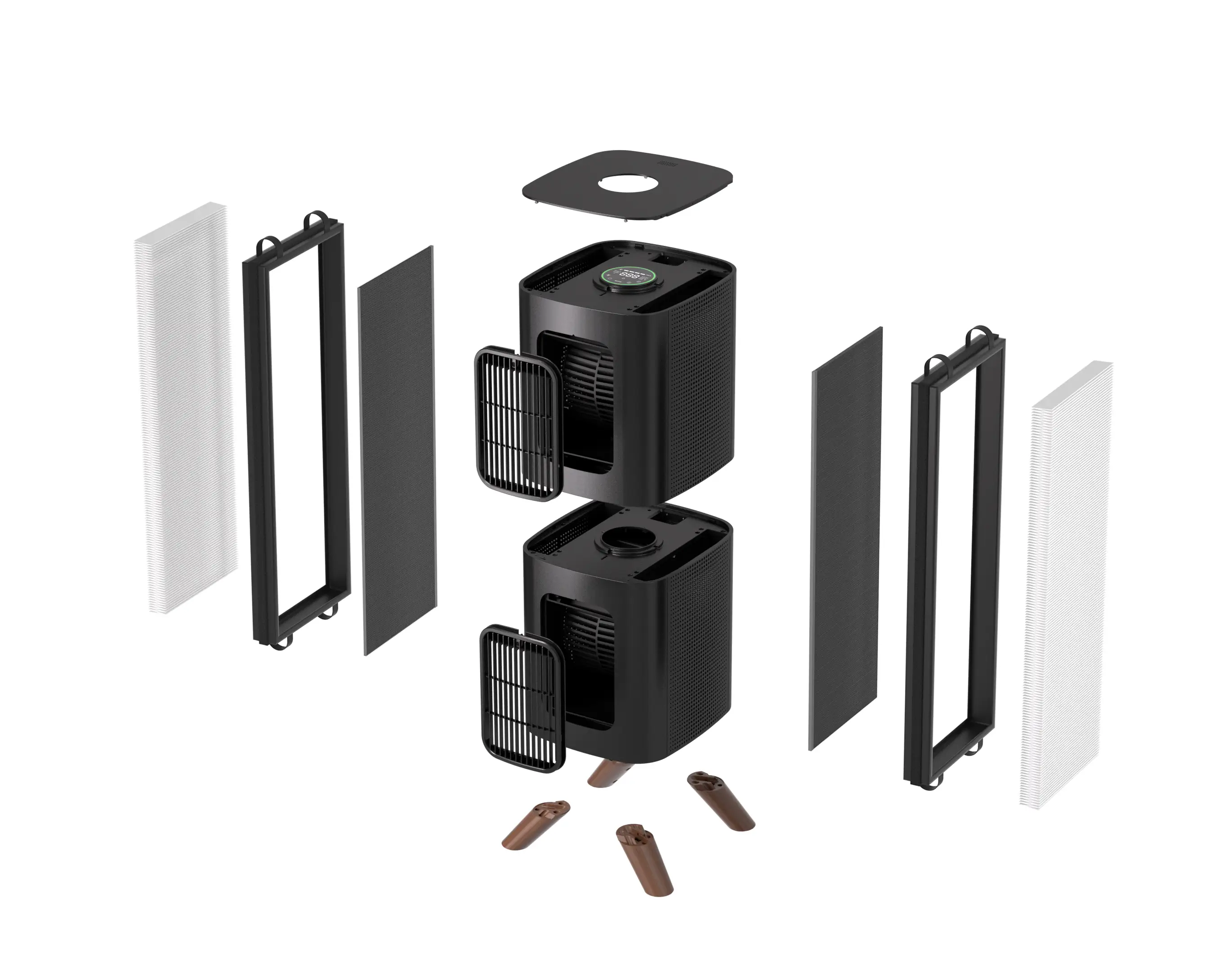
Commercial air purifiers utilize multi-stage filtration systems including pre-filters, HEPA filters, and specialized media to capture particles of various sizes, ensuring comprehensive dust removal. What truly distinguishes professional-grade units isn't just filter quality it's how these components are engineered to work together efficiently, processing higher air volumes while maintaining lower energy consumption and noise levels.
The defining characteristic of commercial solutions is their ability to process large volumes of air quickly and efficiently. This is quantified through the Clean Air Delivery Rate (CADR), which measures how many cubic feet per minute (CFM) of filtered air the unit delivers. For commercial spaces with higher ceilings, larger square footage, and more occupants than homes, a robust CADR isn't just nice to have—it's essential for meaningful air quality improvement.
I remember installing systems in a call center where employees were constantly complaining about allergies and respiratory issues. Within weeks of implementing properly sized commercial purifiers with appropriate CADR ratings, absenteeism dropped by 23%. That's the difference between consumer-grade and true commercial solutions.
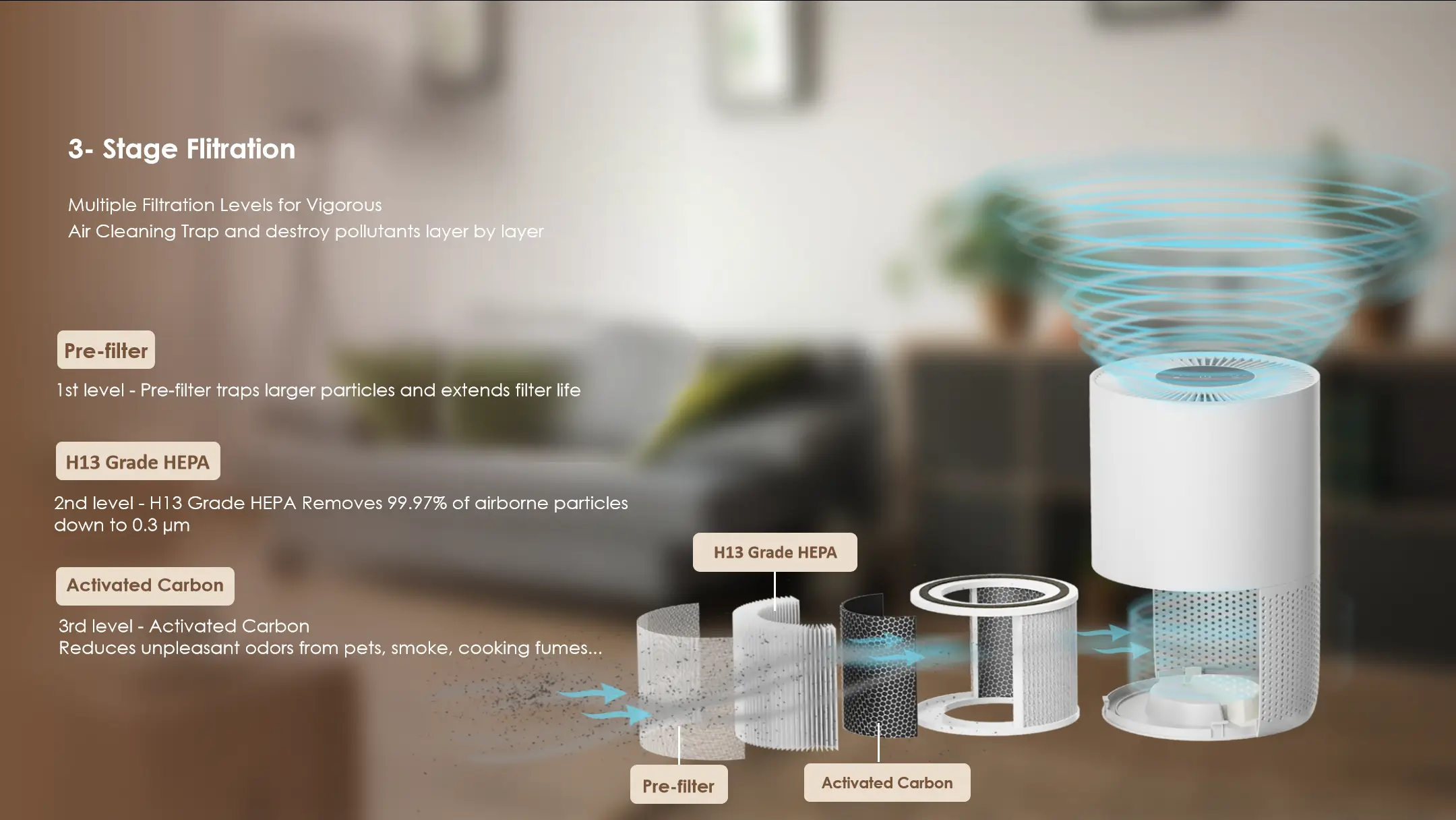
What's the ROI of Installing Air Purifiers in Business Environments?
Whenever I sit down with CFOs or operations directors, the conversation inevitably turns to dollars and cents. "This all sounds great, Alwen," they say, "but what's the return on investment?" It's a perfectly reasonable question—every business expenditure should deliver value.
The good news? The ROI for quality air purification is compelling, multifaceted, and often comes faster than expected. Let me break it down based on what we've seen across hundreds of client implementations:
1. Reduced Cleaning and Maintenance Costs
Dust accumulation is relentless and expensive to address. Without effective air purification, businesses pour resources into regular cleaning services, specialized equipment maintenance, and frequent replacement of dust-sensitive components.
Just last quarter, I worked with a mid-sized tech company that was spending nearly $2,500 monthly on cleaning services for their 5,000 square foot office. After implementing our commercial purification solution, they reported a 22% reduction in cleaning costs translating to annual savings of approximately $6,600 just on cleaning. When we factored in reduced maintenance for their server room equipment and workstations, the numbers became even more impressive.
2. Extended Equipment Lifespan
This is where the savings can really add up, especially in technology-heavy environments. Electronic equipment, manufacturing machinery, and HVAC systems all deteriorate faster when constantly exposed to dust. Dust causes overheating, abrasion of moving parts, and electrical shorts.
One manufacturing client tracked the maintenance records for identical equipment in two similar facilities one with our air purification systems and one without. The difference was striking:
- Computer workstations lasted an average of 2.4 years longer
- Maintenance calls for CNC equipment dropped by 31%
- HVAC filter replacement intervals extended by nearly 40%
For a business with $100,000 in electronic assets, extending lifespan by even one year represents significant capital preservation. I've seen this scenario play out repeatedly across different industries.
3. Employee Health, Productivity, and Retention
Here's where the ROI story gets really interesting, though admittedly harder to quantify with perfect precision. Research consistently shows that improved air quality delivers measurable benefits:
- Reduced absenteeism due to respiratory issues and allergies (typically 5-10% reduction)
- Increased cognitive function and productivity (up to 8-11% improvement)
- Higher employee satisfaction and retention
I remember a call center that implemented our solutions primarily for dust control but discovered an unexpected benefit: call handling metrics improved by 7.3% in the three months following installation. In a company of 50 employees with an average salary of $50,000, even a modest 5% productivity improvement represents $125,000 in added value annually.
| Cost Category | Without Air Purification | With Commercial Air Purification | Annual Savings |
|---|---|---|---|
| Cleaning Services | $30,000 | $22,500 | $7,500 |
| Equipment Maintenance | $15,000 | $11,250 | $3,750 |
| IT Hardware Replacement | $33,000 | $25,000 | $8,000 |
| Employee Sick Days | $20,000 | $18,000 | $2,000 |
| Productivity Loss | $62,500 | $56,250 | $6,250 |
| Total | $160,500 | $133,000 | $27,500 |
Note: Figures based on a hypothetical mid-sized business with 50 employees
4. Regulatory Compliance and Risk Mitigation
Many industries now face increasingly stringent indoor air quality regulations. Proactive investment in air purification helps businesses:
- Meet or exceed occupational health and safety requirements
- Reduce liability risk from employee health claims
- Demonstrate environmental responsibility to stakeholders
I recently worked with a healthcare provider who avoided potential regulatory penalties by implementing comprehensive air quality management—a much less expensive proposition than addressing citations after the fact.
Businesses investing in high-quality air purification systems typically see ROI within 12-18 months through reduced cleaning costs, decreased equipment maintenance, and improved employee productivity. This timeline can be even shorter in environments with specialized equipment, sensitive processes, or high-density occupancy.
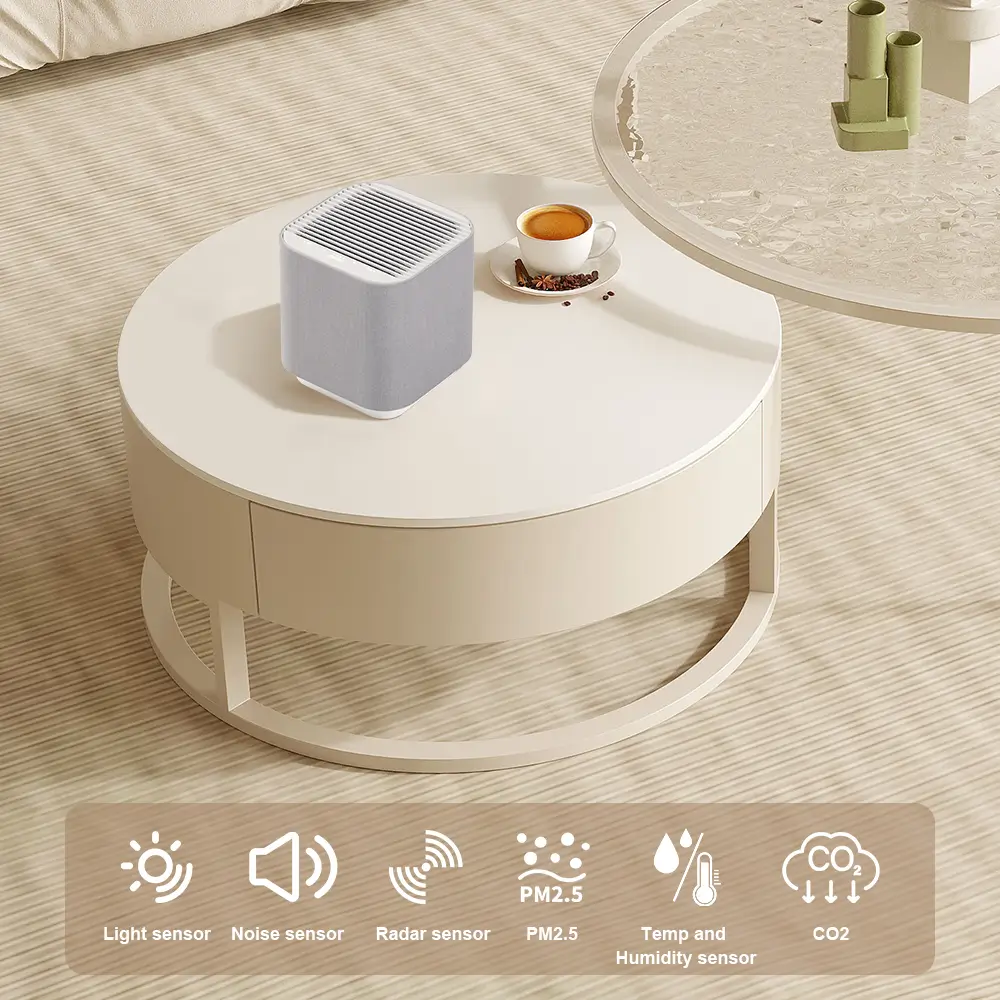
How Should Businesses Choose the Right Air Purifier for Their Needs?
After helping hundreds of businesses implement effective air quality solutions, I've learned that selecting the right system isn't about finding the "best" air purifier—it's about finding the right match for your specific environment and needs. Let me share the framework I use when consulting with clients.
Understanding CADR and Coverage Area
The Clean Air Delivery Rate (CADR) is your fundamental starting point. This isn't just marketing jargon; it's a standardized metric that tells you how much filtered air the unit delivers, measured in cubic feet per minute (CFM) or cubic meters per hour (m³/h).
For commercial environments, I recommend this practical calculation:
Required CADR = (Room Volume in cubic feet × Desired Air Changes per Hour) ÷ 60
Most business environments should aim for at least 5-6 air changes per hour for effective dust control. Healthcare settings typically need 8-12 changes, while industrial environments with active dust generation might require 15 or more.
Let me give you a real-world example: For a typical 30' × 40' office with 10' ceilings (12,000 cubic feet) aiming for 5 air changes hourly:
Required CADR = (12,000 × 5) ÷ 60 = 1,000 CFM
This might sound like a lot—and it is. That's why commercial spaces often benefit from multiple strategically placed units rather than a single large one. I've found this approach not only provides more even coverage but also offers redundancy if one unit needs maintenance.
Filtration Efficiency vs. Energy Consumption
Here's where many businesses make a costly mistake: assuming higher filtration efficiency is always better without considering the energy implications. Higher efficiency often means greater resistance to airflow, potentially increasing energy consumption substantially.
The best commercial systems balance these factors through:
- Low-resistance filter designs that maintain efficiency without excessive pressure drop
- Variable speed motors that adjust to changing conditions
- Smart sensors that optimize operation based on actual air quality
I advise clients to look for units with energy efficiency ratings (Clean Air Delivery Rate per Watt) of at least 2.0 m³/h/W for optimal performance. One client switched from a competitor's "ultra-high-efficiency" units to our balanced approach and reduced their energy consumption by 34% while maintaining the same air quality levels.
Noise Considerations in Business Settings
Noise disruption can quickly negate the productivity benefits of cleaner air. I've seen well-intentioned air quality initiatives fail simply because the units were too loud and distracting.
Commercial-grade purifiers should operate at acceptable noise levels for the specific environment:
- Open offices: <45 dBA on normal settings
- Conference rooms: <40 dBA
- Healthcare/hospitality: <35 dBA
The best units achieve this through aerodynamic internal design, vibration isolation, and quality components—not by simply running fans at lower speeds (which reduces effectiveness). When evaluating options, I always recommend listening to units operating at their typical settings, not just at the lowest speed.
Maintenance Requirements and Total Cost of Ownership
Initial purchase price is just one component of total cost. I've seen businesses choose the cheapest option only to spend far more over time on frequent filter replacements, higher energy bills, and shorter unit lifespans.
Consider these factors for a complete picture:
- Filter replacement frequency and cost
- Energy consumption under typical operating conditions
- Required maintenance procedures and associated labor
- Expected lifespan of the unit
| Specification | Minimum Recommended | Optimal for Commercial Use | Notes |
|---|---|---|---|
| CADR | 300 CFM (510 m³/h) | 500+ CFM (850+ m³/h) | Higher for larger spaces |
| ろ過 | True HEPA (H13) | True HEPA (H13/H14) + Activated Carbon | Multi-stage preferred |
| 騒音レベル | <50 dBA | <45 dBA at medium setting | Lower is better for productivity |
| カバーエリア | Matches space size | 20% greater than space size | Allows for higher air change rate |
| エネルギー効率 | 1.5 m³/h/W | 2.0+ m³/h/W | Lower operating costs |
| Filter Life | 6 months | 12+ months | Reduces maintenance burden |
| センサー | Basic dust | PM2.5, VOC, CO2, humidity | Enables smart operation |
When selecting commercial air purifiers, businesses should prioritize CADR ratings, appropriate coverage area, energy efficiency, and total cost of ownership including maintenance requirements. The goal isn't finding the most expensive or feature-laden option—it's finding the sweet spot where performance, efficiency, and cost align with your specific needs.
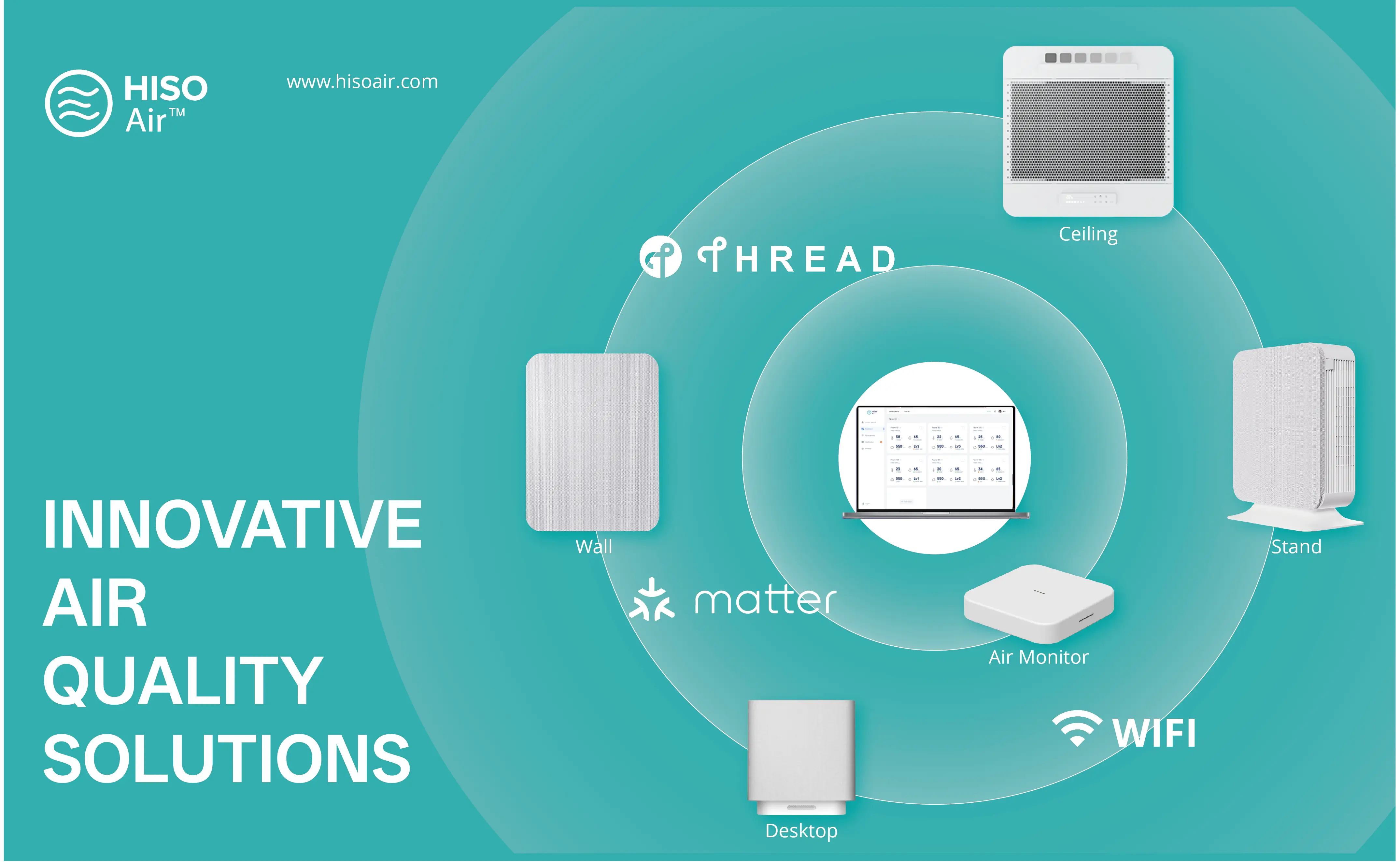
What Makes HisoAir's Commercial Air Purifiers Stand Out in the Market?
I've spent years in this industry, and I've seen countless businesses struggle with air purification solutions that promised the world but delivered disappointment. At HisoAir, we've built our commercial product line by directly addressing the pain points I've witnessed firsthand.
Engineering for Performance and Efficiency
Our commercial units feature H13 HEPA filtration—capturing 99.97% of particles down to 0.3 microns—but that's just the beginning. The real difference lies in our proprietary low-resistance airflow path, developed through countless iterations and testing.
Most commercial purifiers force an uncomfortable trade-off: either high performance with sky-high energy costs, or energy efficiency with compromised performance. Our engineering team in China has spent years refining designs that deliver both, resulting in energy efficiency ratings up to 2.5 m³/h/W—up to 30% better than industry averages.
I remember installing our systems in a Japanese electronics manufacturing facility where energy costs were a major concern. Their previous purifiers were effective but consumed so much power that they were often turned down or off entirely. Our solution maintained superior filtration while reducing energy consumption by 27%, allowing them to run the units continuously as intended.
Customization for Specific Business Needs
One size never fits all in commercial environments. A hospital has fundamentally different requirements than a manufacturing facility or a hotel. That's why we offer:
- Modular filtration options that can be configured for specific pollutant profiles
- Integration capabilities with existing HVAC and building management systems
- Custom housing designs for specialized environments
Last year, I worked with a precision electronics manufacturer in Japan who needed units that could handle both particulate and chemical filtration without introducing electrostatic discharge risks—a unique challenge that off-the-shelf solutions couldn't address. We developed a custom configuration that not only solved their specific requirements but reduced their clean room contamination events by 87% in the first year.
Smart Monitoring and Management
Modern businesses need data-driven solutions, not just boxes that blow filtered air. Our commercial units include:
- Real-time air quality monitoring with PM2.5, VOC, and optional CO2 sensors
- Network connectivity for centralized monitoring across multiple units and locations
- Predictive maintenance alerts to optimize filter replacement timing
- Performance analytics to demonstrate ROI and compliance
One of our healthcare clients particularly values the ability to document air quality improvements for regulatory compliance, while our manufacturing clients appreciate the predictive maintenance features that prevent unexpected downtime.
HisoAir's commercial air purifiers feature H13 HEPA filtration, low-resistance design, and customizable solutions that deliver superior performance while maintaining energy efficiency. This combination of performance, efficiency, and intelligence makes them particularly well-suited for businesses serious about addressing dust and other air quality challenges.
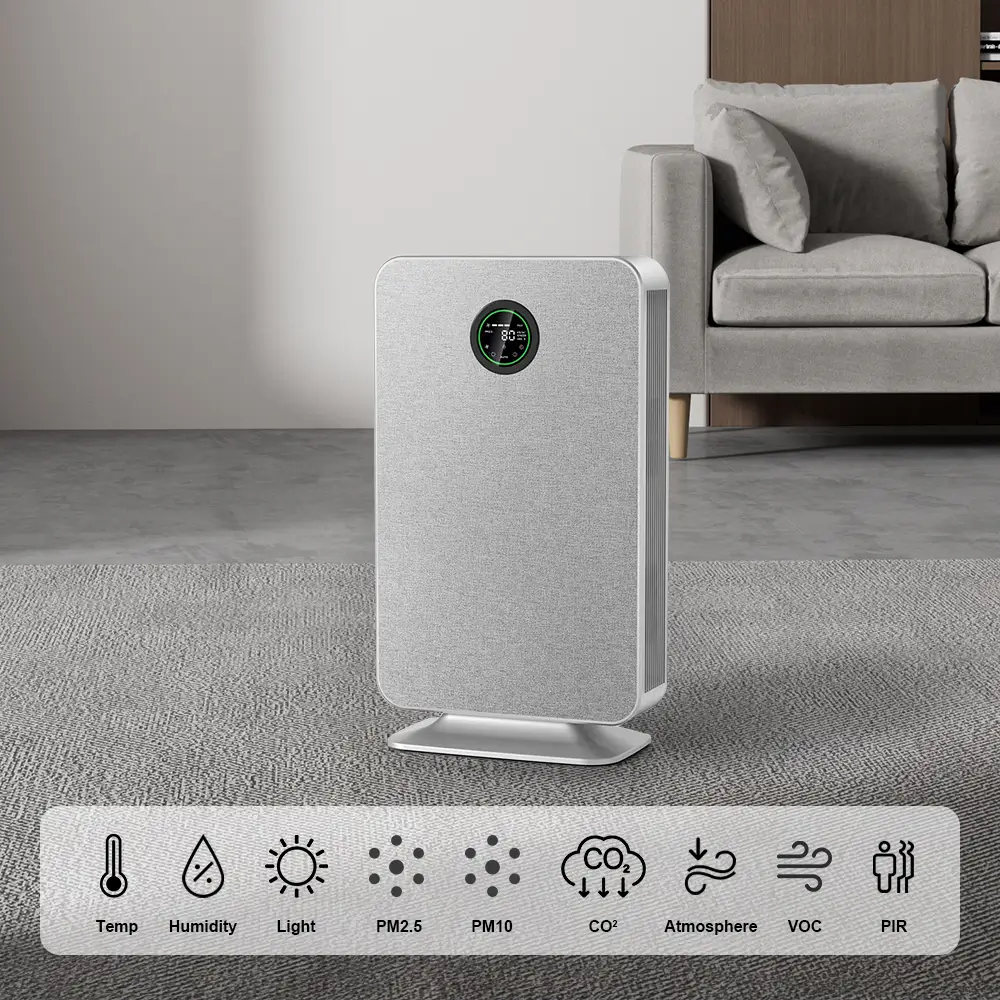
How Can Businesses Maximize Air Purifier Effectiveness?
Even the most advanced air purification system won't deliver optimal results without proper implementation. Based on hundreds of successful deployments across diverse industries, here are the key strategies I recommend for maximizing effectiveness:
Strategic Placement for Optimal Coverage
The location of your air purifiers significantly impacts their performance. I often visit client sites where units are tucked away in corners or behind furniture—dramatically reducing their effectiveness. Consider these practical guidelines:
- Position units in high-traffic areas and near known dust sources (printers, entry points, production areas)
- Ensure 360° air intake isn't blocked by walls or furniture (maintain at least 12 inches of clearance)
- For large spaces, multiple smaller units often outperform a single large unit
- Place units at breathing height when possible, as dust concentration varies vertically
In open office environments, we typically recommend placing units near printer stations, along main walkways, and in conference rooms where occupancy density increases. One client saw a 35% improvement in measured air quality simply by repositioning their existing units according to these principles—no additional purchase required.
既存システムとの統合
Air purifiers shouldn't operate in isolation from your existing HVAC system. For optimal results:
- Coordinate air purifier placement with HVAC airflow patterns to avoid "dead zones"
- Upgrade HVAC filters to complement standalone purifiers
- Consider building management system integration for coordinated operation
- Implement regular HVAC maintenance alongside air purifier maintenance
One of our manufacturing clients reduced overall energy costs by 12% by coordinating their air purification strategy with their HVAC system, allowing for less aggressive central air conditioning while maintaining better air quality.
Maintenance Protocols for Sustained Performance
This is where many well-intentioned air quality initiatives ultimately fail. Consistent maintenance is crucial for long-term effectiveness:
- Establish regular pre-filter cleaning schedules (typically monthly)
- Set calendar reminders for main filter replacements based on manufacturer recommendations
- Document air quality measurements before and after filter changes to track performance
- Train facility staff on proper maintenance procedures
I recommend creating a simple air quality maintenance calendar that integrates with your existing facility management protocols. This ensures air purification becomes part of your standard operations rather than an afterthought.
Strategic placement of air purifiers near dust sources, regular maintenance according to manufacturer specifications, and ongoing air quality monitoring are essential for maximizing dust reduction effectiveness. By treating air purification as a system rather than just a product, businesses can achieve sustained improvements in air quality and realize the full potential of their investment.

結論
Throughout my years working with businesses across diverse industries and geographies, one truth has become abundantly clear: addressing dust and air quality isn't just an environmental or aesthetic concern—it's a strategic business decision with far-reaching implications.
The evidence is compelling. Commercial-grade air purifiers with proper filtration technology do indeed significantly reduce dust in business environments. But the benefits extend far beyond cleaner surfaces. From extended equipment lifespan and reduced maintenance costs to improved employee health and productivity, the business case for investing in quality air purification is robust.
As we look to the future, I see air quality management becoming an increasingly central component of business operations. Regulatory requirements will likely tighten, employee expectations will continue to rise, and the competitive advantage of healthier, more productive workspaces will grow. Forward-thinking businesses are already positioning themselves ahead of this curve.
At HisoAir, we're committed to advancing the technology and accessibility of commercial air purification solutions. Whether you're managing a small office, a sprawling manufacturing facility, or anything in between, I invite you to reach out and discuss how we can help you create a cleaner, healthier, and more productive environment for your business.


